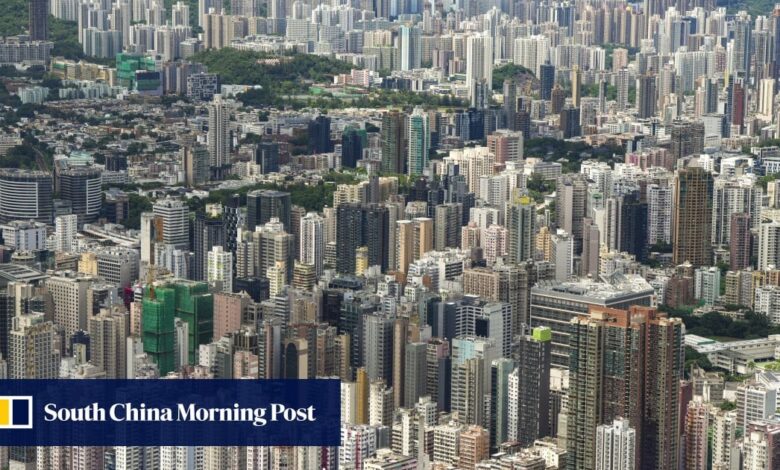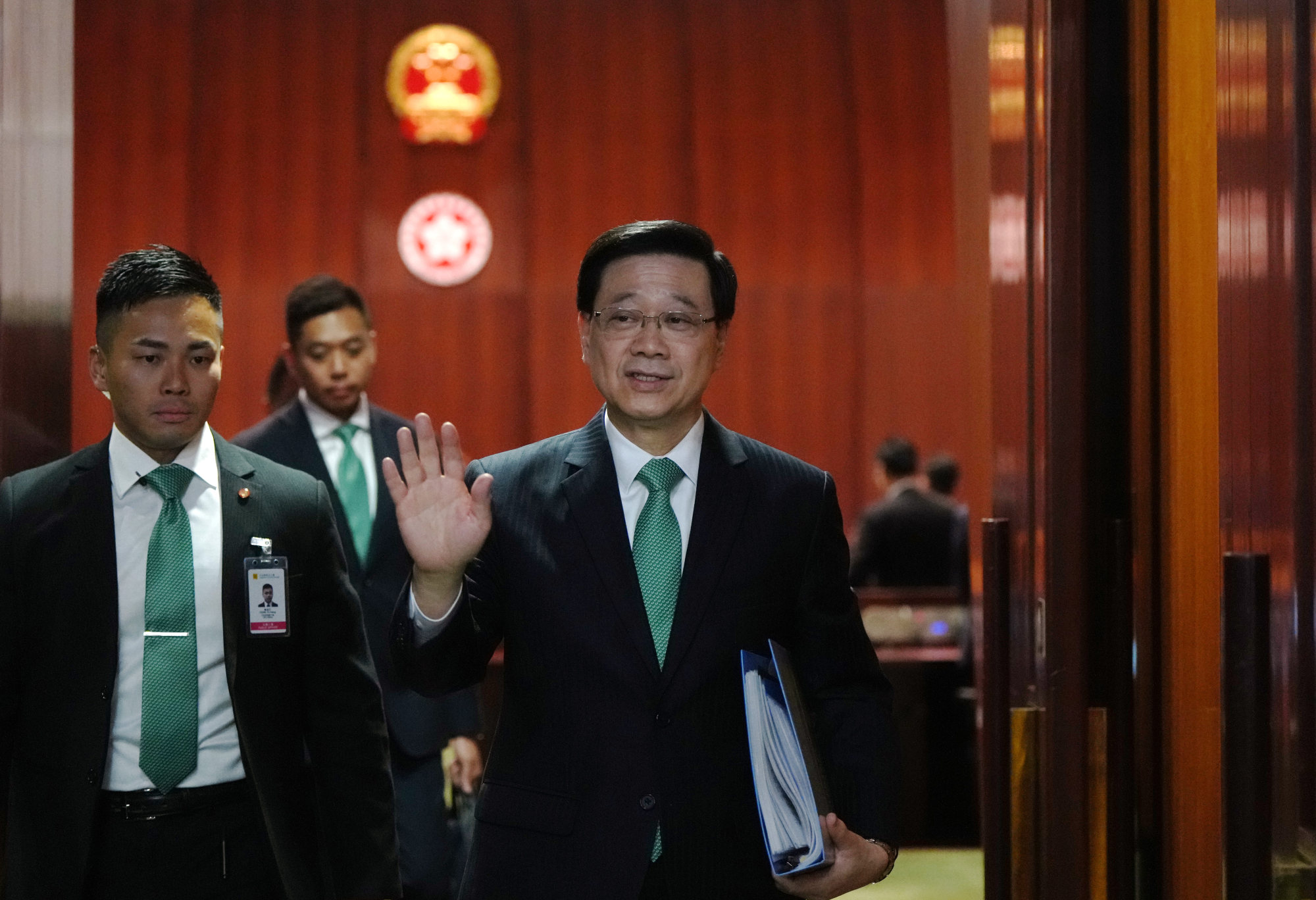Hong Kong housing: John Lee vows not to ‘target’ property prices, acknowledges conflicting interests of current, potential homeowners

[ad_1]
Hong Kong’s leader has vowed not to “target” property prices, acknowledging the conflicting interests of prospective and existing homeowners, while pledging to provide clear information on future land supply to ensure both buyers and sellers can make well-informed decisions.
Chief Executive John Lee Ka-chiu on Saturday also said the government would monitor the property market closely and consider adjusting cooling measures announced in his policy address based on market conditions.
Lee said while he aimed to promote “healthy developments” in the property market and avoid drastic price fluctuations, the government would not take action to “target” home prices due to the conflicting interests of prospective and existing homeowners.
“People who haven’t bought a home are certainly hoping prices will fall, but those who already own property, on the other hand, are hoping prices will stay put because it will bring about a wealth effect,” he told a radio show.

“Therefore, the government’s role is not to control property prices, but to ensure that [future home] supply can meet market demand and that the information is clear enough to help residents when buying homes”.
Lee rolled back some property market curbs in his latest policy address, halving the buyers’ stamp duty for non-permanent residents and the stamp duty for local homeowners purchasing more properties.
As it happened: Hong Kong halves non-resident buyers’ stamp duty in policy address
As it happened: Hong Kong halves non-resident buyers’ stamp duty in policy address
The measures follow a continued decline in home prices in the city. In September, the prices of lived-in homes fell nearly 1.75 per cent compared with the previous month, reaching their lowest since April 2017, according the Rating and Valuation Department on Friday.
Despite falling prices, homes in Hong Kong still remain among the least affordable in the world. In the third quarter of last year, median home prices in the city were 18.8 times higher than residents’ median annual income, according to the Demographia International Housing Affordability report released in March.
Much of Hong Kong’s future land supply will come from new towns in the Northern Metropolis, which includes an IT hub in northern New Territories near the border with mainland China, and the creation of several artificial islands between Lantau and Hong Kong Island.
Lee on Saturday reaffirmed his commitment to the islands project, even though authorities could face a HK$100 billion deficit for another year, but he conceded there were still a lot of uncertainties surrounding the ambitious reclamation project.
“The project will have many reports, including an environmental impact assessment … the project will advance, but the actual pace of our work will be affected by various factors,” he said.
Hong Kong home prices at lowest level since 2017 amid high interest rates
Hong Kong home prices at lowest level since 2017 amid high interest rates
The city leader added that authorities would explore alternative funding options for the HK$580 billion artificial islands, which might include securitisation, and expressed confidence that the project would attract pension funds interested in long-term investment opportunities.
The government is also aiming to attract investment with the revival of the capital investment entrant scheme, which will grant residency to eligible individuals who invest a minimum of HK$30 million in assets such as stocks, funds and bonds, excluding real estate.
Hong Kong home prices at lowest level since 2017 amid high interest rates
Hong Kong home prices at lowest level since 2017 amid high interest rates
While more details about the scheme will be announced by the end of the year, Lee told the radio show that authorities might require that a proportion of the investments be allocated to “strategically important” sectors, such as information technology.
He said authorities had set a high minimum threshold because the city was packed with advantages, including a low tax regime and political stability, and that “many people would come to the city without us actually having to brag about it”.
“China is developing into a global power and Hong Kong has an influence in the world. The global engine of development is moving eastward. These important factors are telling us that Hong Kong will only perform better as time goes on,” he said.
“Investors are very smart. There are successful investors in the world who will be able to see Hong Kong’s great prospects.”
[ad_2]
Source link





